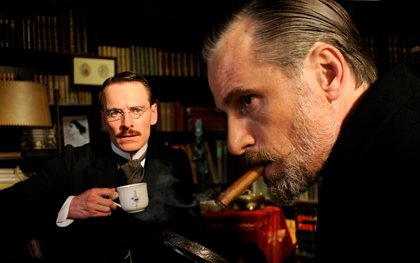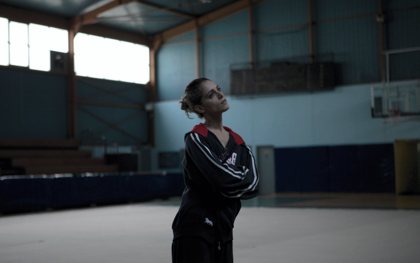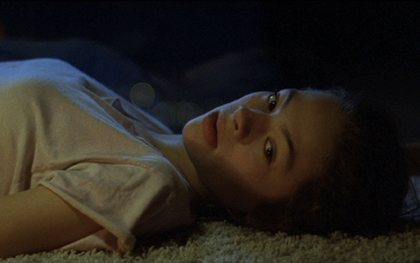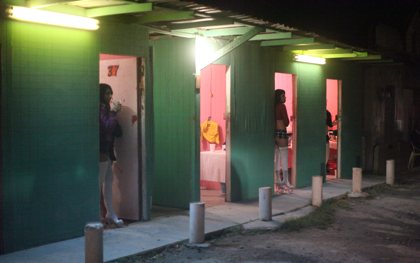Festivals
Venice Film Festival 2011: The S&S blog
Day three: Sexual healing

A Dangerous Method
Barbara Wurm, 3 September
Film of the day
If a day starts with a film which (along with its main characters) shares the conviction that all human doing is in one way or the other related to, if not rooted in, sexuality, it promises to be an honest and good day.
Sigmund Freud (Viggo Mortensen), Carl Gustav Jung (Michael Fassbender) and the largely forgotten Jewish-Russian psychoanalyst Sabina Spielrein (Keira Knightley) form a ménage à trois of many dimensions in David Cronenberg’s masterly period piece A Dangerous Method, which sets out to uncover the historical and philosophical backbone of modernity, not to mention the core of human nature.
Whoever does not look for the bastard within him or herself after watching this film (which could only seem “dry”, “empty”, “not all too original” or even “disappointingly un-Cronenbergian” on a superficial level) is living in denial. Our tendency to deceit and self-deception is stripped away the moment Spielrein confesses her masochistic desire; it is perturbed even more when another patient/analyst, Otto Gross (Vincent Cassel, magically frantic), states that a neurotic such as himself “can't imagine a more stressful concept” than monogamy. Thus inspired (or seduced), Jung lets it all out and turns out to be quite adept in the use of the leather belt.
For all the meticulous historical framing, Cronenberg’s exploration of the irrational, and of psychoanalysis as the radical turning point in the history of the mind, offers all kinds of joyful and painful transfers into the world (and body) we live in. There’s something awesome about the delicate yet utterly open way Jung, his wife (Sarah Gadon, blissful) and his patient/mistress/true love/analyst Spielrein handle the rise and dismantling of relationships.
The same holds true for the triangle between Jung, Spielrein and Freud, played out on the writing grounds of psychoanalytical theory. It’s a relief to return to a time when dignity and graceful manners were not considered incompatible with (to use our vocabulary) ‘hardcore’ sex.
Even more comforting is the fact that the portrayal of Spielrein as the only character with credibility in bed and in psychoanalysis (as opposed to Jung’s esoteric erring and Freud’s asexual existence) makes A Dangerous Method that rarity, a film with a charming feminist touch.
Lost youth
One could call Yorgos Lanthimos’ Alpis (Alps) a postmodernist complement to Cronenberg’s elaboration on modern thought – if one could bear the term ‘postmodernism’.
As in his last film Dogtooth, Lanthimos’ nameless characters move through life and visually frosty locations (a huge gym, a sterile hospital, even more sterile homes) in an affectless, mechanical way; their sex and death drives don’t seem attached to their psycho-physiological machines. For them neither eros nor thanatos has anything to do with the libido. When they want to have sex or die, they do so in order to escape their social networks – ersatz surrogate families which, though deliberately established, only reproduce the same authoritarian behaviour and patriarchal family model over and over again.

Alps
‘Gender trouble’ is a euphemism for what’s going on in Lanthimos’ surreal world. Even these physically perfect women (Aggeliki Papoulia as the nurse, Ariane Labed as the gymnast) with their stubborn wills and crazy determination – the nurse tries to get emotionally closer to her father by putting her hand between his legs – are ignored, told off, drilled, beaten or simply abused by their fathers and ersatz fathers, but also by the coach and the paramedic, the other two members of their secret society, “the Alps”.
Everybody here, but especially the women and the young, is trapped in self-aggression and violence, which they try to hide behind a curtain of artificial tenderness, silence and fantasy. Their imaginative creativity is hilarious, but it doesn’t seem to save them.
More female pleasures
The Orizzonti section screened a double-bill of films in which, as in Alpis, two young women took the lead. At first glance it seemed only a small step from Greek surrealism to a Portuguese one; but Palácios de pena (Gabriel Abrantes and Daniel Schmidt), while sometimes brilliantly visualised, proved a generally rather manneristic and all too conceptualist attempt to reflect the “culturally inherited fear in Portugal, linked to political and social oppression during the Inquisition and Fascism.”

Snow Canon
The French Snow Canon by Mati Diop, on the other hand, was a real revelation. About Vanina, a French teenager, falling in love with her American babysitter, it’s a superbly interwoven series of sensual and sensational moments that add up to a wonderful, tender yet cool and naughty coming-of-age picture. In the way Diop treats intercultural and intergenerational issues, a pleasurable young serenity goes hand in hand with an outstanding maturity in acting and cinematography.
Working women
There was an outstanding documentary in the Orizzonti programme – and just as there are no coincidences for Jung, it can’t be a coincidence that it came from the country of Freud, the (cinematically) sexually emancipated Austria. Michael Glawogger’s Whores’ Glory, a triptych on prostitution in Thailand, Bangladesh and Mexico, not only ends on a similar image to Snow Canon (two women kissing), but tied together the many threads of the day.
Without going into detail, let me just say how astonished I was upon overhearing a stranger talk about the film after the screening. “What shocks me most is not what these women say”, I think I heard her say, while putting on some make-up, “but that they actually seem to like talking about this kind of life.”

Whores’ Glory
Maybe I heard her all wrong. If not, she would have hit exactly the target of the filmmaking of Cronenberg, Lanthimos and Glawogger. Let’s get some more sexual healing, folks! Maybe it will save us from becoming so horrifyingly bourgeois.
To heed the maestro: “It took me a long time to explain to my actors and actresses the importance of psychoanalysis,” Cronenberg said during his press conference. “But finally they all know that it actually helps: as you can see, they are better people now!”
Day four: Wreckage and survival »
See also
Game boy: Chris Rodley on David Cronenberg’s virtual-reality comedy eXistenZ (November 2005)
Odd man out: Cronenberg talks to Kevin Jackson about Spider (January 2003)
Kinsey reviewed by Leslie Felperin (March 2005)
The new school: Mar Diestro-Dópido sees Gabriel Abrantes and Daniel Schmidt’s A History of Mutual Respect at the IndieLisboa film festival (May 2010)
Sight & Sound’s films of the 2000s including Michael Glawogger’s Workingman’s Death (February 2010)
